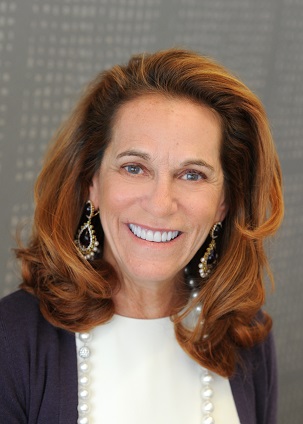The role of a mentor is simple at its foundations. We draw on our years of experience to provide support, encouragement, and guidance to our younger peers. When our proteges feel uncertain or alone, we’re poised to offer a push in the right direction or a supportive word; when they accomplish their professional goals, we cheer beside them to celebrate the win. In turn, mentees challenge us to look outside the bounds of our experience to explore new possibilities and ideas. It’s a useful connection for seasoned and rising professionals alike during normal times — but now, faced as we are with a COVID-19 loneliness epidemic, mentorship has become nothing short of invaluable.
By now, we’re all too familiar with the term. Social distancing — isolating ourselves to prevent the spread of infection — is a necessary safety measure, but it comes with side effects. Sequestered within our own four walls, we’re distanced from our professional connections and disconnected from our support networks. When left unmaintained, mentorship bonds can fray or dissolve, leaving mentees without the ready support they relied on previously.
This is a major problem. Even before the novel coronavirus began prompting shutdowns, feelings of disconnection poised a significant threat to younger workers’ development and performance. According to a 2019 poll conducted by the London-based research and analytics firm YouGov, Millennials are the loneliest generation of workers, with three out of 10 younger workers reporting that they “always or often feel lonely.”
In COVID-19, the issue has — as you might expect — been exacerbated. Earlier this year, SocialPro surveyed 1,228 people between the ages of 18 and 75 and found that over 20 percent of respondents from every age group claimed that they felt “lonelier than usual” because of the coronavirus. Researchers found that millennial workers have had a particularly difficult time during the pandemic, with 34 percent of those surveyed noting that they were “always or often” lonelier because of COVID-19.
These findings are clearly problematic from a social perspective, but they also have significant implications for workers, employers, and the economy as a whole. Multiple studies have found a connection between feelings of disconnection and reduced work output; in 2011, researchers at the University of Pennsylvania and California Sacramento University reported that increased loneliness often led to poorer task and team performance, as well as lesser commitment.
Similarly, a study published in the Harvard Business Review in 2018 found that “lonelier workers reported lower job satisfaction, fewer promotions, more frequent job switching, and a higher likelihood of quitting their current job in the next six months. Feeling a lack of workplace social support was associated with similar negative business outcomes.”
“The economic impact of loneliness is indeed staggering,” the study’s writers conclude. They aren’t wrong to use the term; in 2017, New Economics reported that lonelier workers cost employers more than £2.5 billion annually — that’s $3.5 billion in U.S. currency — in the United Kingdom alone.
Interpersonal connection is vital at work. As one writer for SHRM puts the matter, “Personal connection isn’t just good for engagement and happiness at work, it’s what makes us human. It’s part of our genetic makeup. This deeply ingrained evolutionary legacy goes back to the days when our survival depended on safety in numbers. Today, work is where we often find our tribe.”
But in a time when teleworking is necessary and regular in-person interactions are nearly impossible, finding that sense of connection in daily work is challenging. Younger workers need support and encouragement now more than ever before — and mentorship may provide them with the reinforcement they need to stay engaged and optimistic about their lives at work.
“Mentorship is the trifecta for employee morale,” Janice Omadeke, CEO of The Mentor Method, commented in a recent article for Forbes. “You’re providing a safe space for [young workers] to discuss their feelings, you’re connecting your talent to resources that build resiliency, and you’re showing an investment in their development, which can offer peace of mind, personally and professionally. That emotional support is vital as organizations do their best to navigate the pandemic.”
We cannot allow mentorship relationships to fall by the wayside when younger professionals need them the most. But how can we accomplish this in a time when maintaining those bonds is logistically challenging at best? Let’s discuss.
Be Proactive in Your Communication
Given how stressful life during the pandemic can be, mentees may feel uncomfortable reaching out to their mentors to ask for support. Mentors need to reaffirm their professional relationship by periodically reaching out to their proteges. These messages don’t need to be long, formal, or even have a specific task in mind — a simple offer to chat is enough.
If you do end up scheduling a conversation, revise your expectations to suit the situation. Given current circumstances, your mentee may not be able to achieve in-office standards of professionalism. They may be looking after children or dealing with additional responsibilities at home, and do not have the chance to dress in business attire or answer your call in an office-quiet room. They may not even have time to talk — and that’s fine, too! Everyone’s situation is different; sometimes, just knowing that someone cares and is there to listen can be enough for stressed mentees.
Provide Direction — Or Don’t.
While some mentees will want to move forward on projects during the pandemic, others may not have the time — or energy — to push forward professionally. As I’ve noted before, it’s crucial to be compassionate and take time for yourself if you need it. The same holds in mentorship; don’t criticize your mentee if they haven’t made the progress they were hoping to make before COVID-19 began. Instead, try to listen.
As career columnist Ruth Gotian recently wrote for Nature Magazine, “None of us has faced a situation like this before, and most of us just need to talk things out to feel a little better. While your protégé may have a lot of questions, she probably knows that you don’t have many (or any) answers. But, it can be useful for a protégé to vent emotions and give voice to anxiety. Your focus as a mentor should be on listening and empathizing.”
This advice comes with a caveat. Mentors, too, face stress during this time. If you can’t take on additional emotional weight from your mentee, don’t. Be compassionate to yourself, as well as to others.
Prioritize Video Chat Over Text Messaging
Not all forms of online communication are created equal. While it might be easier to dash off an email between projects or have a quick chat over Slack or Skype, these text conversations will not have the same connective effect as those held over video chat platforms.
“During this time, the more we can replicate real-life interactions, the better,” psychologist Deborah Roth Ledley told reporters for Healthline. “We must be mindful of ways to stay socially connected even when we aren’t seeing people face-to-face.”
Set aside a half-hour to have a real conversation with your mentee. While it might not be quite the same as a face-to-face meeting, you may find the interaction to be more meaningful and connective than any halfhearted text message.
Mentorship is more vital than it has ever been. Faced with the prospect of pandemic and isolation, America’s youngest professionals are struggling to stay engaged at work. Mentors who have the time and energy to do so should step up and provide the support their mentees need to remain hopeful. We are all in this together.


